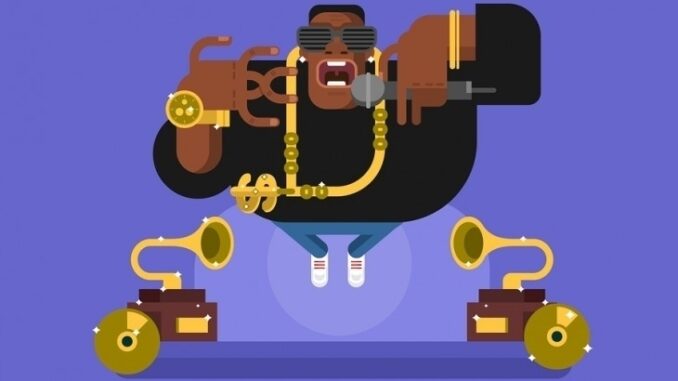
Being a rapper is something that many millennials dream about. Since the advent of cheap home recording software, the barriers to entry into the music industry have been lowered, and countless young people are trying to make a living spitting rhymes. But few actually know what it’s like to be a rapper.
Very, very few rappers sell enough records to afford the lifestyle they so frequently portray. In the entire history of the genre, fewer than 140 artists have had platinum albums, and almost no contemporary artists are meeting that mark. So if you can’t make money by selling records, what are the ways to have a viable career? Here’s what it’s like to be a rapper, and what you can do to make it happen.
What It’s Like To Be A Rapper: Ways To Make Money Rhyming
Writing songs for other artists, known colloquially as ghostwriting, is an important early-career move for many rappers. It’s how Drake got his start, and many people make big bucks with bars they write for someone else. Read this article from Forbes to get the inside scoop from rappers who have worked as ghostwriters, including Smoke DZA, Skyzoo, MF Grimm, and more.
Guy Routte is the CEO of W.A.R. Media, the company co-founded by veteran rapper Pharoahe Monch. Routte helps guide Monch’s career, and told us that touring outside of the US is one of the best ways to keep money coming in.
“One of the ways we make additional income is touring overseas,” he says. “A lot of the core Pharoahe fans are in Europe and in Australia and in different parts of Asia. We tend to make more money per show outside of the U.S. market. The price in the U.S. market is very contingent on hits and who’s on the radio at the moment, whereas a lot of the overseas markets are very, very true school and are really about the art, so we’re able to survive a lot more.
“While we’re overseas, we end up doing a lot of what they call dub plates, which is taking a song like [Monch’s 1999 hit single] ‘Simon Says’ and re-doing the hook with a DJ’s or crew’s name in it,” he continues. “Those things pay very well, and they’re very, very big overseas.”
Plenty of rappers and other hip-hop personalities also pick up side gigs DJ’ing. Talib Kweli is only one of the performers who has added DJ gigs to his calendar, and now maintains a busy schedule of them all over the world. Other rappers like Q-Tip, Wiz Khalifa, and even Jermaine Dupri have made big bucks behind the turntables instead of in front of them.
Rapper donwill of the critically beloved group Tanya Morgan points out that rappers have plenty of skills (and equipment) that can turn into money-making opportunities.
“The most obvious thing would be to use your learned abilities with software mixing or vocal coaching and take it to a more traditional setting, offering services up to people,” he explains. “If you have a home studio that you record in, and you have enough space and time, you can engineer somebody’s session. Or if you have an arsenal of equipment that you don’t use a lot, you can rent the equipment out. You have to examine everything you do, everything in your routine, and figure out how to monetize it or use it to its peak ability.”
For many aspiring artists, what it’s like to be a rapper isn’t much different than what it’s like to pursue any other artistic endeavor – you have to do it after your 9-to-5 is over.
“The first thing that I tell people is to get a job,” says the rapper YC the Cynic. “Cars need gas. Your career is no different. You need a well-oiled machine, and oil costs money. You need PR, you need money for merchandise, you need money to record. Everything costs money, and nobody can make it off skill alone. You could be the best rapper in the world, and nobody’s going to hear you unless you have money. I had to learn that the hard way.”
